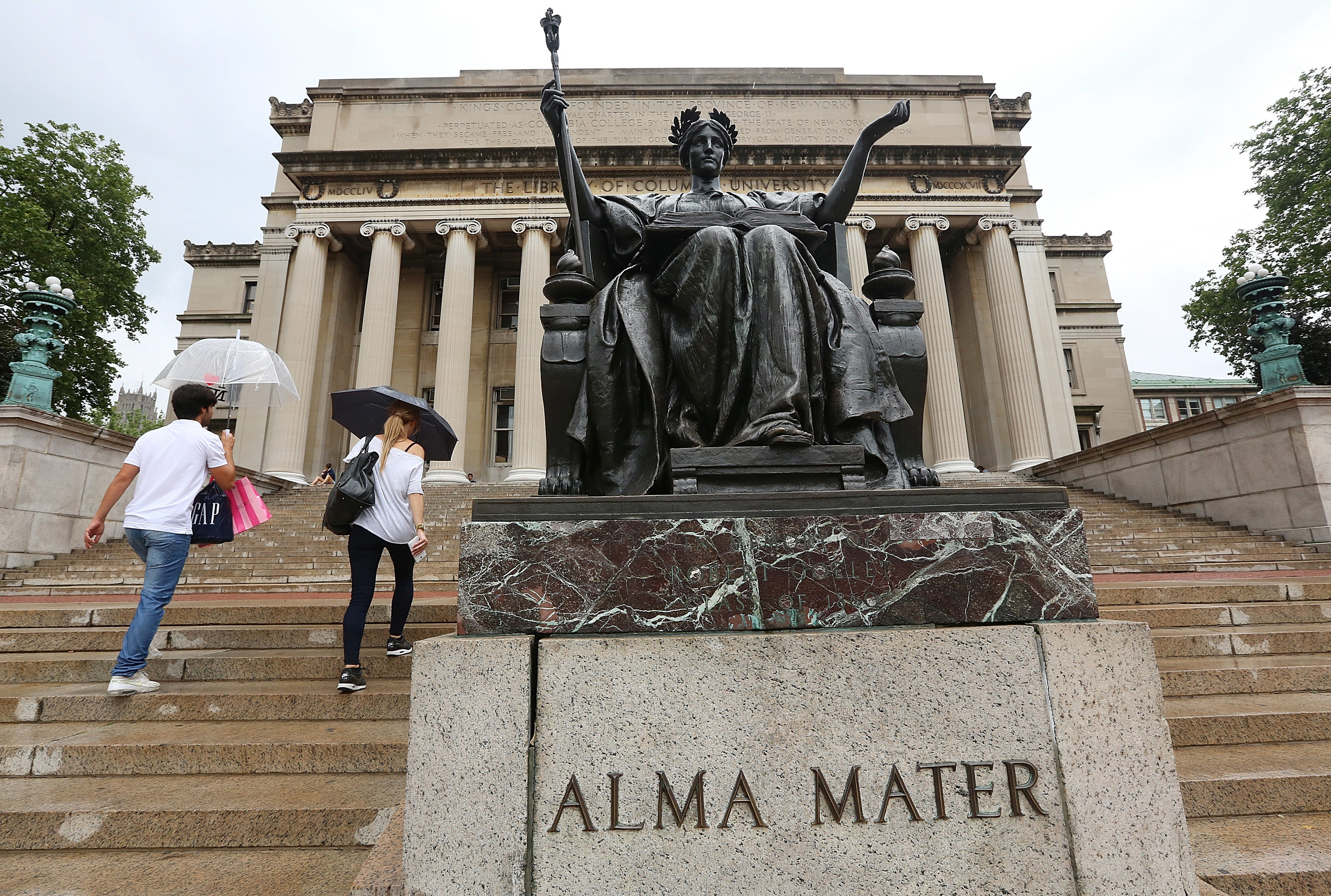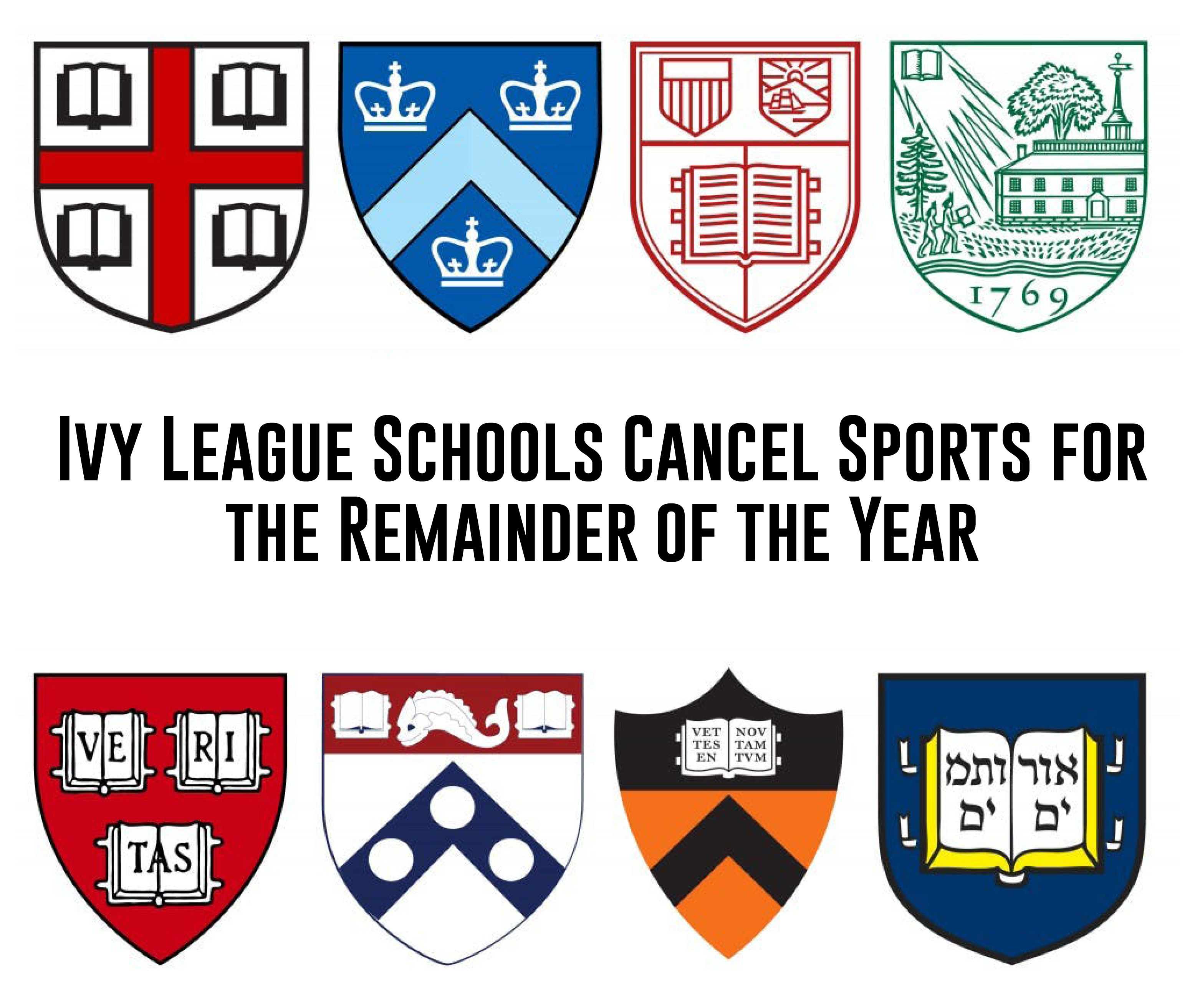The Ivy League is an athletic conference comprising eight private institutions of higher education in the Northeastern United States. The conference name is also commonly used to refer to those eight schools as a group. The eight institutions are Brown University, Columbia University, Cornell University, Dartmouth College, Harvard University, Princeton University, the University of Pennsylvania, and Yale University. The term Ivy League also has connotations of academic excellence, selectivity in admissions, and social elitism.
In addition, Ivy League schools are often viewed by the public as some of the most prestigious universities worldwide and are often ranked amongst the best universities in the United States and worldwide. All of the Ivy League's institutions place within the top 15 of the U.S. News & World Report college and university rankings; with five placing in the top six.
This system is exacerbating inequality, retarding social mobility, perpetuating privilege, and creating an elite that is isolated from the society that it's supposed to lead. In 1985, 46 percent of incoming freshmen at the 250 most selective colleges came from the top quarter of the income distribution. As of 2006, only about 15 percent of students at the most competitive schools came from the bottom half. The more prestigious the school, the more unequal its student body is apt to be. As of 2004, 40 percent of first-year students at the most selective state campuses came from families with incomes of more than $100,000, up from 32 percent just five years earlier.
Although Cornell University has the highest acceptance rates of all Ivy League schools, this does not mean that it's an easy school to get into. To be a competitive applicant for any of these eight prestigious institutions, you cannot slack off when it comes to your applications. Start planning your acceptance strategies early, which means studying hard at school and planning ahead for your standardized tests. If you have not been involved in an extracurricular activity since childhood, plan to seriously commit to an activity as early as you can. Choose something you love to do as this will be evident in your application components.
Most importantly, do not choose to go to an Ivy League school for appearances. Choose a program you actually want to attend and graduate from, rather than a program that will look good on your CV. Prestige and social status do not necessarily translate into better educational fit for you. Choose happiness and invest in your education in a school you truly want to attend.
These colleges are known for being selective in their admissions; since the year 2000, the acceptance rates at each of the universities is said to have varied from 6 to 16 percent. In fact, in the most recent academic year, seven of the eight Ivy League schools reported record-high applications; seven also reported record-low acceptance rates. Acceptance rates at Ivy league schools are between 5% and 10%, which in practical terms means that they reject times more applications than they accept. While getting into the Ivies is obviously quite challenging, knowing how to present students in the best possible light can significantly improve the odds of success.
For students with all-star statistics (test scores, GPA's etc.), having anything less than stellar applications can negatively impact the likelihood of acceptance. Applications prepared by NC Global's team of admission experts have yielded significantly better outcomes, including far more likely acceptance into Ivy League colleges and universities. It is easy to say "plan ahead", but there is a lot of advantage in knowing what school and program you would like to attend in the future.
If you are certain about which school you want to enroll in, it might be wise to apply through the Early Action/Early Decision program. This way, your deadline for application is earlier, but so is your response date. To utilize this opportunity, you must research your school of choice and determine whether you are a good fit for the program to which you're applying. Early Action programs give you an early answer as to where you stand in the admissions process. According to most recent data, Cornell's acceptance rates for their early decision program is 22.7%!
The Ivy League is an American collegiate athletic conference comprising eight private research universities in the Northeastern United States. The term Ivy League is typically used beyond the sports context to refer to the eight schools as a group of elite colleges with connotations of academic excellence, selectivity in admissions, and social elitism. Its members are Brown University, Columbia University, Cornell University, Dartmouth College, Harvard University, the University of Pennsylvania, Princeton University, and Yale University. What used to be a last resort for students who were underqualified for the Ivies is now just as competitive and at the top of many a college wish list.
Its location in the heart of Music City is part of the appeal, but so are the academics and campus life. Undergraduate research opportunities are plentiful, and they're integrated into every field of study, and the university is currently pending more than $600 million to convert its dorms into LEED-certified residential colleges. According to the Princeton Review, Vanderbilt also has the happiest students. Each Ivy League college has its own unique accomplishments that make it important. All carry a certain reputation with them, and each school has programs that excel primarily in the medical and law fields, making them some of the most sought-after schools in the world.
Their admissions process is very selective, which helps the schools ensure that they only accept the best and brightest. Many famous people have graduated from Ivy League schools, including recent presidents George W. Bush, Bill Clinton, and Barack Obama. This prestige leads many to believe that these colleges are only for the wealthy and elite. Often, companies look for Ivy League graduates as potential employees, usually preferred by law firms, medical facilities, and large corporations. It has long been coveted to have earned a degree from an Ivy League school.
Today, there are other competitors that some claim to be just as good as their Ivy counterparts. Some of these well-known schools include Duke University, Johns Hopkins, MIT, Vanderbilt, and Georgetown University, to name a few. The Ivy League schools are still excellent in both academia and in sports, and they have left a legacy of higher education with an exceptional track record and reputation to go along with them. All eight are in the top 20 for number of sports offered for both men and women among Division I schools. Unlike most Division I athletic conferences, the Ivy League prohibits the granting of athletic scholarships; all scholarships awarded are need-based .
In addition, the Ivies have a rigid policy against redshirting, even for medical reasons; an athlete loses a year of eligibility for every year enrolled at an Ivy institution. Additionally, the Ivies prohibit graduate students from participating in intercollegiate athletics, even if they have remaining athletic eligibility. The only exception to the ban on graduate students is that seniors graduating in 2021 are being allowed to play at their current institutions as graduate students in 2021–22.
This was a one-time-only response to the Ivies shutting down most intercollegiate athletics in 2020–21 due to COVID-19. Ivy League teams' non-league games are often against the members of the Patriot League, which have similar academic standards and athletic scholarship policies . That is, a rise in the number of discrete students cannot fully explain the decline in acceptance rates at selective colleges in recent years. Leadership is at the core of the educational experience at this liberal arts college, which has produced VIPs like former AOL CEO Steve Case, legendary composer Stephen Sondheim, and Morning Joe co-host Mika Brzezinski.
Since 1997, leadership studies has even been offered as its own concentration, blending political science, anthropology, and history. Restrictive Early Action, also called single-choice early action, is a program that is only available at several universities, including a few Ivy League schools. Harvard, Princeton, Yale, Stanford, Georgetown, Notre Dame, and Boston College all offer students the chance to apply early to their first-choice private college or university. This application is non-binding, although the student may typically only apply to additionalpublicinstitutions in the early round. A Single Choice Early Action Plan is offered by Harvard, Princeton, and Yale.
This plan does not require a commitment to matriculate, and students may apply to other colleges under those colleges' regular admission programs but not to another institution's Early Action or Early Decision program. Students admitted under Early Action will be sent a financial aid offer when they receive their acceptance decision if they have completed all of the required financial aid forms. Decades ago, a high GPA and good test scores were almost enough to guarantee a seat at many of the nation's top colleges. For today's high school seniors, however, the competitive college admissions world is anything but straightforward.
Every January, when most applications are due, many students are still at a loss when it comes to what top schools, such as Harvard or Yale, are looking for. Elite schools are not just looking for academic excellence; that might be necessary to get your application to the next round, but prospective applicants need to show that they went the extra mile to prove their potential. After the Second World War, the present Ivy League institutions slowly widened their selection of students.
It is best known for its residential housing policy, its architecture, and its outstanding programs in the social sciences and performing arts. In particular, it's History, Sociology, Anthropology and Psychology departments are among the best int the world. Students live in one of 14 residential areas based on their academic pursuits, and remain there throughout their four undergraduate years.
Yale believes that its residential colleges foster a sense of strong community and also allow for cooperation among students who share a common passion. Liberal arts colleges, both private and public, are located all over the United States. If you prefer to live in a certain part of the country or want to stay close to home, the location of Ivy League schools might be a consideration. Because all Ivy League schools are private universities, tuition costs are higher for students compared to their in-state public tuition alternatives.
However, Ivy League schools also have the reputation for being generous with financial aid due to their large endowments. Even though Ivy League schools have impeccable reputations, they do not produce the most students who ultimately earn doctorate degrees. According to a 2010 CBS Money Watch report, liberal arts schools dominated the top 10 list of students who eventually earned doctorates. For example, liberal arts schools produced twice as many students with science doctorate degrees as compared to other institutions, including Ivy League schools. If you are planning to pursue a doctorate, you might look beyond Ivy League possibilities and examine additional opportunities. A main difference between Ivy League schools and regular liberal arts schools is their acceptance rates.
Ivy League schools are notorious for having highly competitive acceptance rates, and according to a 2012 CNN Money Report, those rates are getting even lower. Harvard and Yale had 5.9 percent and 6.8 percent acceptance rates, respectively, and the Ivy League school with the highest acceptance rate was Cornell at 16.2 percent. In comparison, some highly esteemed non-Ivy-League liberal arts colleges, such as Carnegie Mellon, University of Virginia and Northeastern, had acceptance rates of 27.8 percent, 29.6 percent and 31.9 percent, respectively, according to U.S. Ivy League schools offer exceptional educational opportunities but so do many other colleges in the US and worldwide. Schools like Stanford, MIT, Rice, and CalTech are not Ivy League schools but often rank higher in specific programs than some Ivy League schools. Many of them also offer lower tuitions and have higher acceptance rates.
Consider your area of study and see if another top school provides opportunities that will help you succeed. As late as the 1960s many of the Ivy League universities' undergraduate programs remained open only to men, with Cornell the only one to have been coeducational from its founding and Columbia being the last to become coeducational. Before they became coeducational, many of the Ivy schools maintained extensive social ties with nearby Seven Sisters women's colleges, including weekend visits, dances and parties inviting Ivy and Seven Sisters students to mingle. This was the case not only at Barnard College and Radcliffe College, which are adjacent to Columbia and Harvard, but at more distant institutions as well. The movie Animal House includes a satiric version of the formerly common visits by Dartmouth men to Massachusetts to meet Smith and Mount Holyoke women, a drive of more than two hours. As noted by Irene Harwarth, Mindi Maline, and Elizabeth DeBra, "The 'Seven Sisters' was the name given to Barnard, Smith, Mount Holyoke, Vassar, Bryn Mawr, Wellesley, and Radcliffe, because of their parallel to the Ivy League men's colleges."
These institutions are home to some of the most cutting-edge facilities in the world, their faculty members are leaders in their fields, and their alumni are highly accomplished as well. These highly secretive lists refer to applicants who have been marked by the Admissions Office as being "of interest to the school" for one reason or another. These applicants might be athletes, legacies, children of major donors, or otherwise have a connection to the university and its faculty or administration. The admission rate for students who can get a spot on these coveted lists is significantly higher than that for either early or regular decision applicants.
This is an often-asked question and before we answer it, it's important to take a close look at the term Ivy League institutions. The Ivy League refers to a collegiate athletic conference that sees participation from the sports teams of eight private universities in the Northeastern United States. The conference name is also commonly used to address those eight schools as a group outside the sports context. These eight schools are Brown University, Columbia University, Cornell University, Dartmouth College, Harvard University, the University of Pennsylvania, Princeton University, and Yale University.
Davidson has all the hallmarks of a liberal arts college , along with offerings you find at larger schools, like Division 1 sports. Basketball is a big part of the culture here—NBA superstar Steph Curry played for the Wildcats before he was drafted by the Golden State Warriors after his junior year. In both academics and campus life, students are bound by a strict honor code.
Exams are self-scheduled and unproctored, or take-home; doors to college buildings remain unlocked; and announcements are posted around the school to help people find lost belongings. There are eight Ivy League schools -- Brown, Columbia, Cornell, Dartmouth, Harvard, Pennsylvania, Princeton and Yale -- and each has the reputation for being highly competitive in academic standards and admissions policies. Debates over the value of an Ivy League education have carried on for decades, but many believe it's worth the money. There are several main differences between Ivy League schools and general liberal arts colleges, but you can receive an excellent education from either. For it to be worth applying to any of these schools, you should be performing at a very high level academically. Even at the Ivies with acceptance rates above 8 percent , serious applicants have very impressive high school transcripts and test scores.
At Cornell, for example, the average SAT score for admitted students is a 1480. In your search for quality education institutions in the US, the name Ivy League is bound to come up. The elite group of educational institutions has been a constant source of fascination and aspiration amongst students who wish to pursue higher studies in the United States. But what is Ivy league exactly, who all are included in the list of ivy league colleges? Harvard University is probably the most well-known Ivy League school. It is located in Cambridge, Massachusetts, and is a medium-sized school with around 7,000 undergrad enrollments.
Harvard is also a very competitive school as the acceptance rate is only 5%. Accepted students' SAT grades typically range from 1460 to 1580, and their ACT grades range between 33 and 35. Harvard is rated #1 for biology studies and political science studies according to Niche's 2020 Best Colleges. University of the People is a member ofHarvard Business School Online's (HBS Online's) Collaborating Colleges program. Harvard Business School Online offers a unique and highly engaging way to learn vital business concepts via an innovative online platform that brings the Harvard Business School classroom to you.
Private schools such as Stanford University, University of Chicago, and Massachusetts Institute of Technology frequently go toe-to-toe with the Ivy League on "best college" lists. In terms of mind-bogglingly low acceptance rates, schools like Alice Lloyd College, the Juilliard School, and the Curtis Institute of Music have most Ivy League universities beat. Not only are American high schoolers applying to more schools, they're applying all over the country. And it's not just them; students from all over the world can apply to American universities through the convenience of the internet, which again drives up the number of applications. International student applications have grown substantially over the past twenty years, meaning that just looking at American demographics is a poor way to understand the college admissions landscape.
Dartmouth College Known for being the smallest Ivy League with a student enrolment of about 6,400, Dartmouth is renowned for its excellence in liberal arts, medicine and international relations. With an acceptance rate of 11%, Dartmouth is relatively an easier school to get into, although the university is reputed for its undergraduate courses, and not so much for its graduate programmes. At many colleges and universities, academics are the most important factor in the admissions process.




























No comments:
Post a Comment
Note: Only a member of this blog may post a comment.